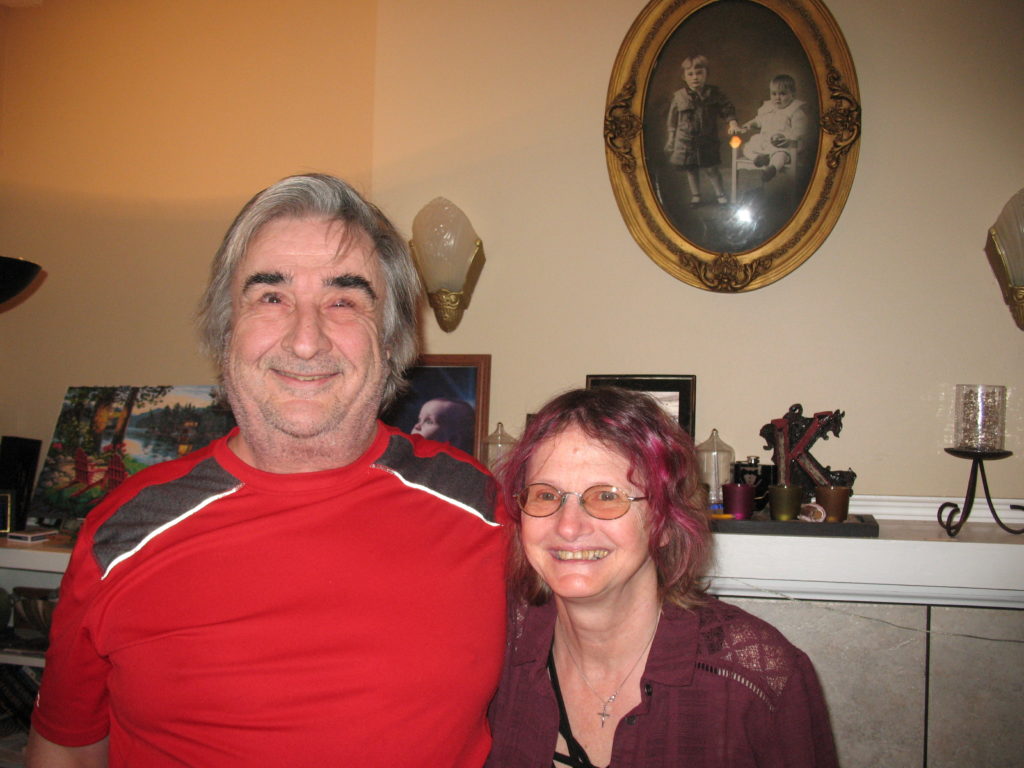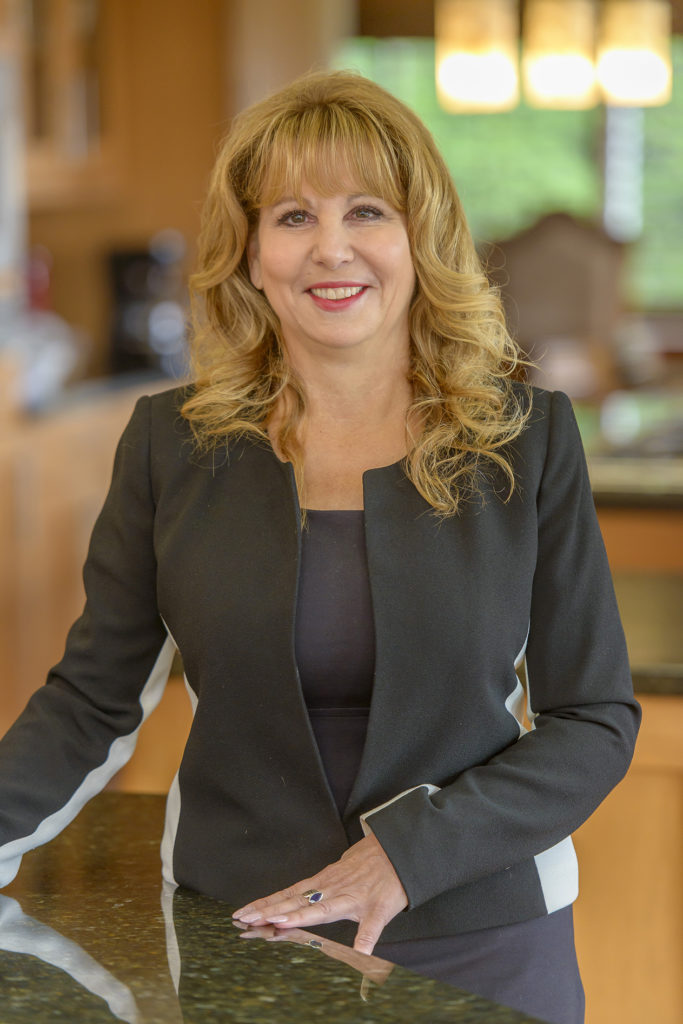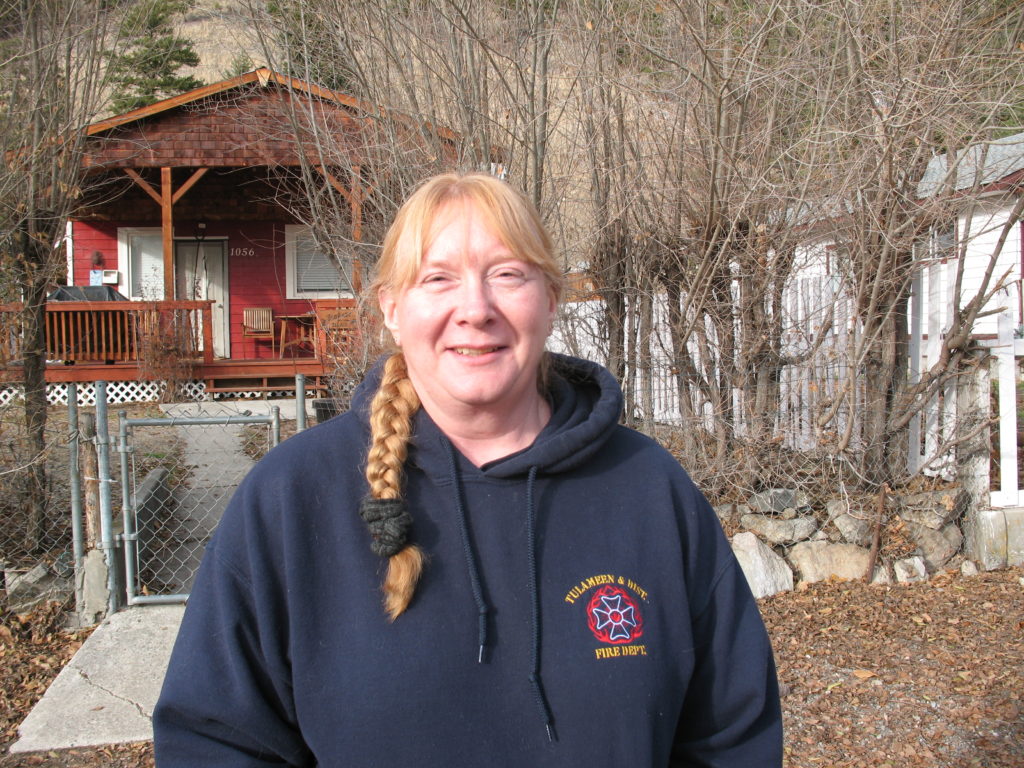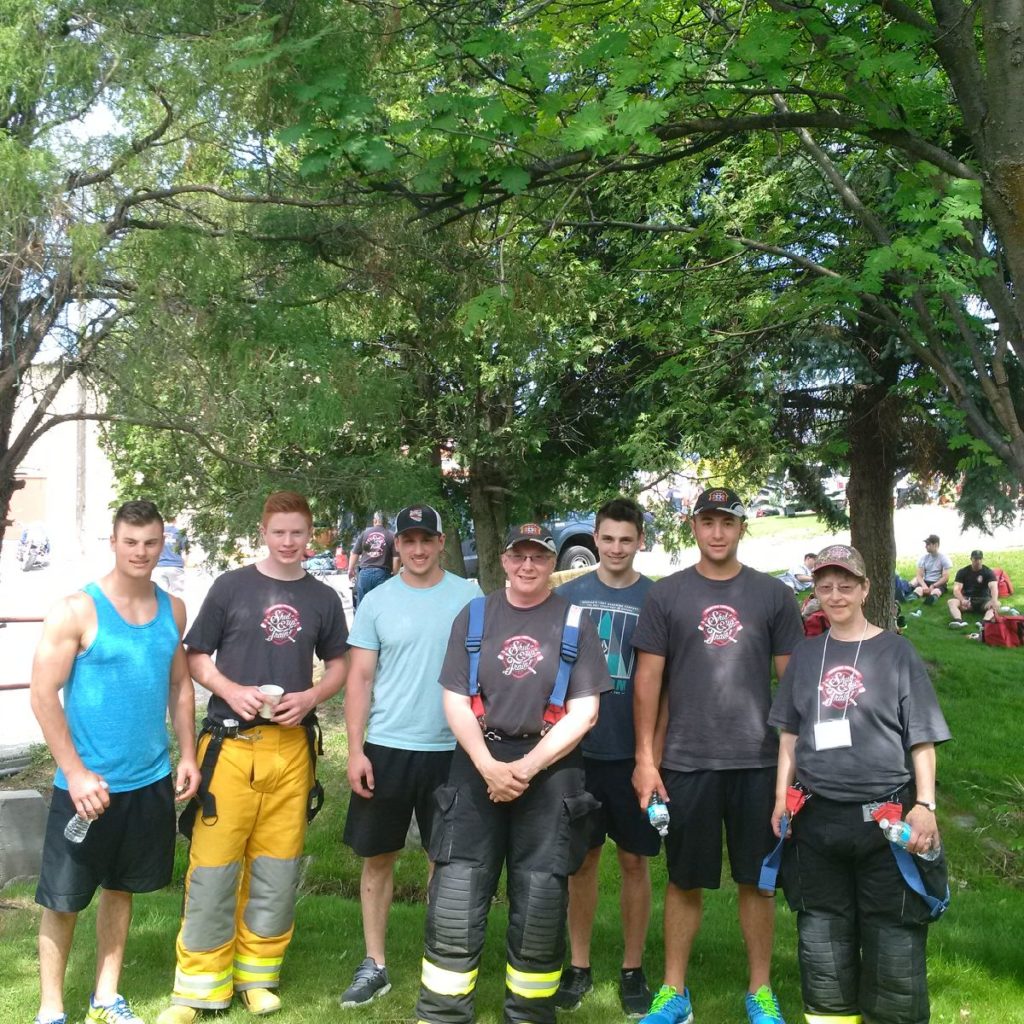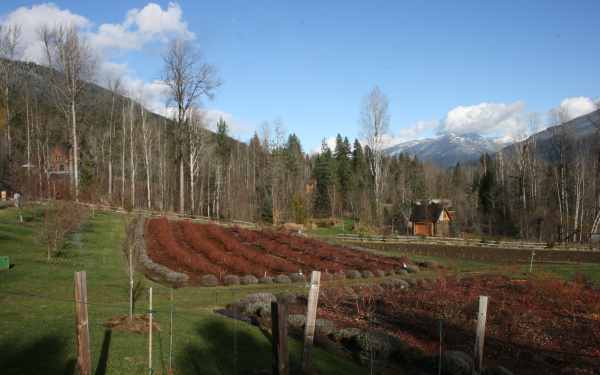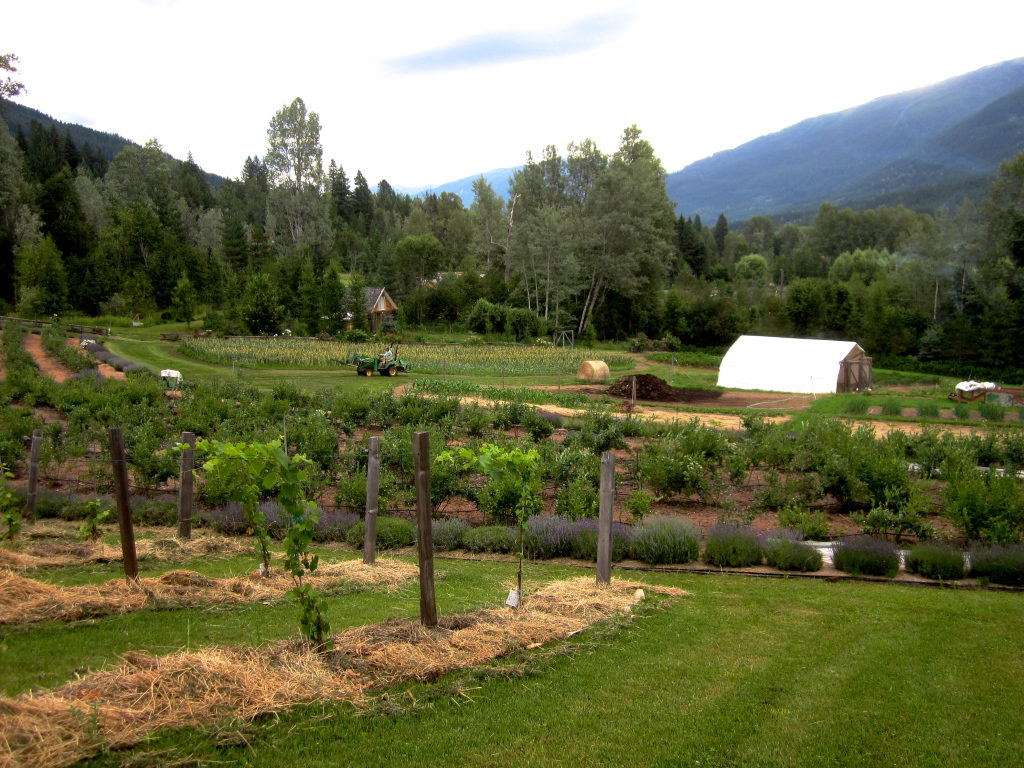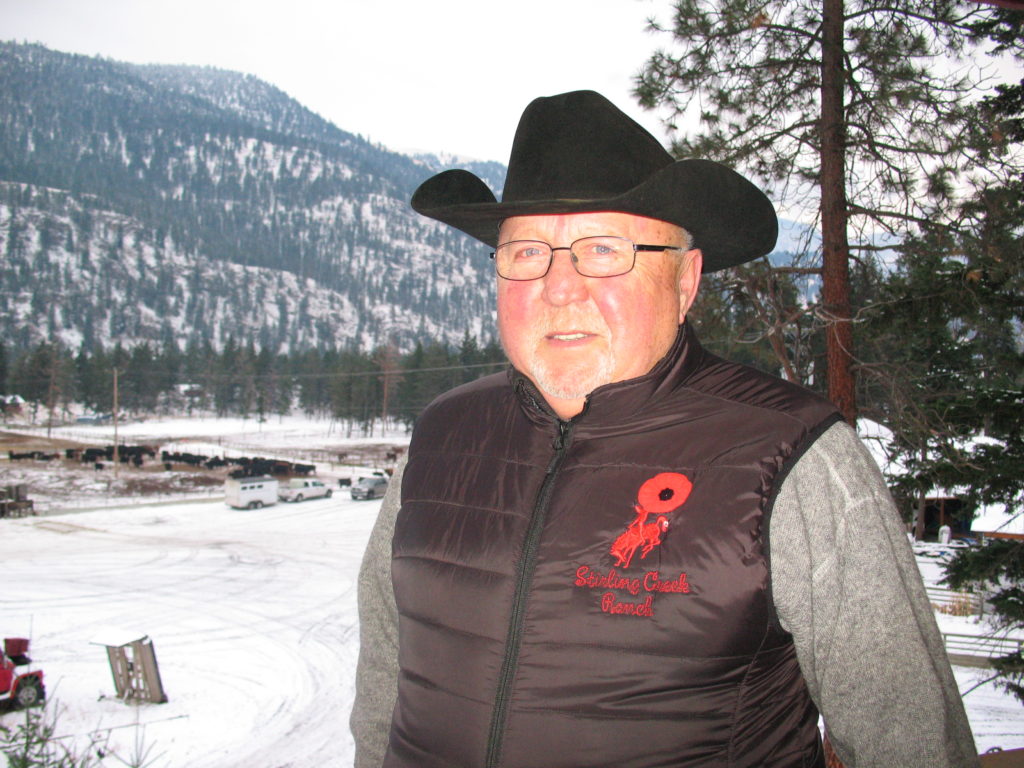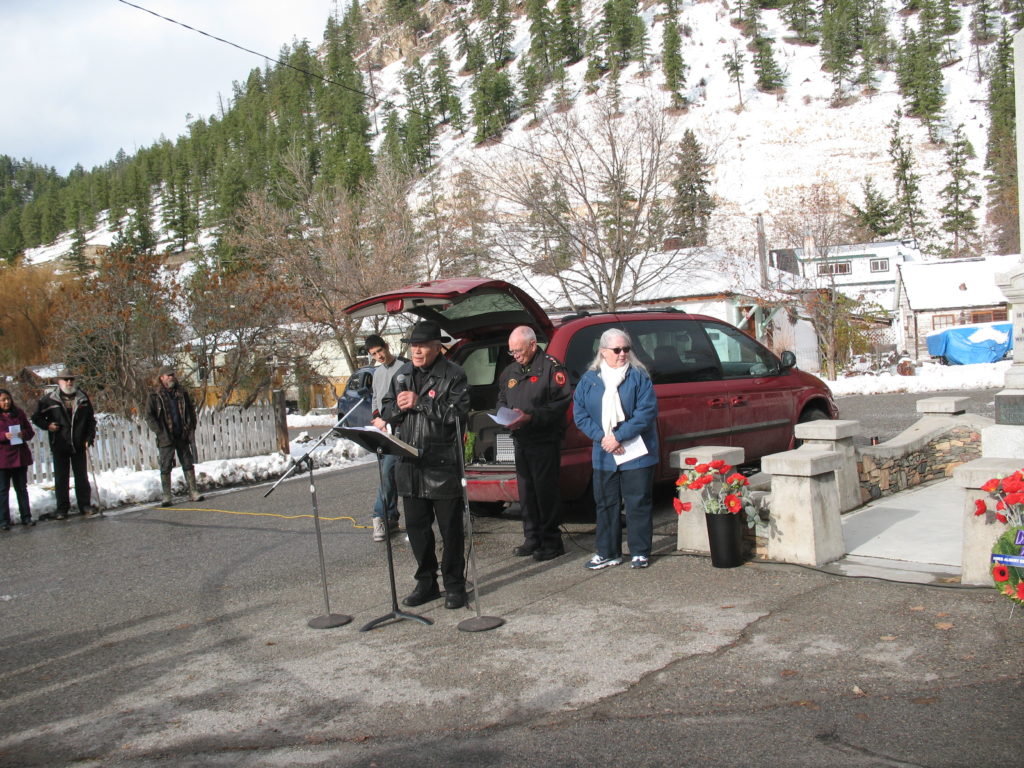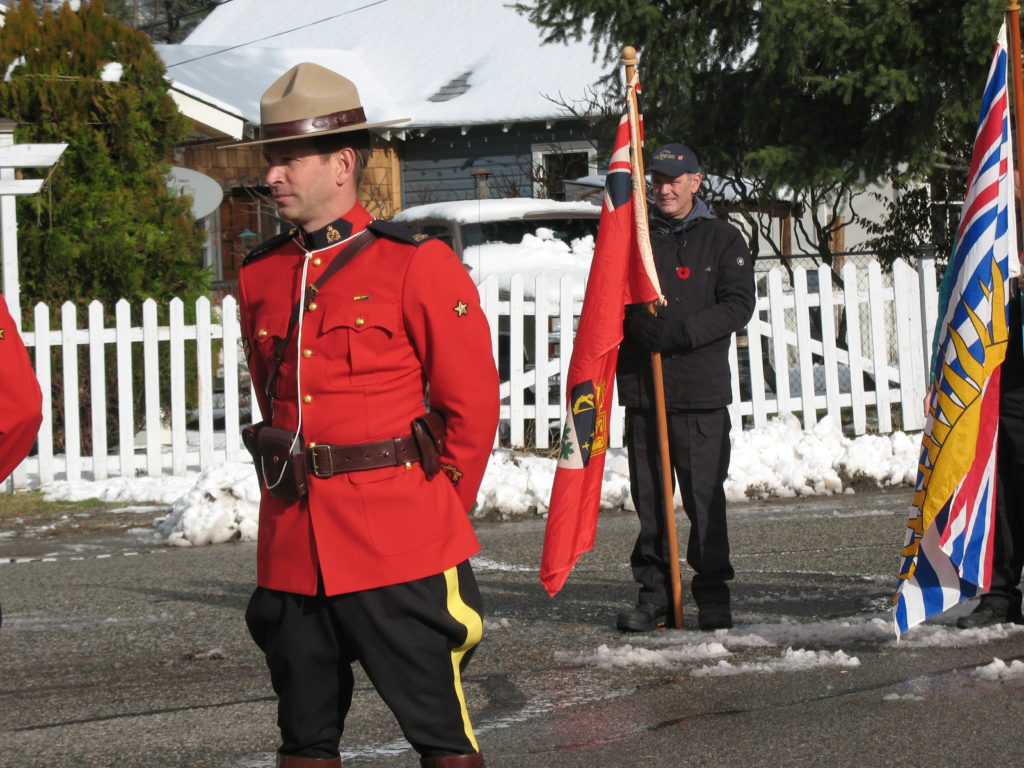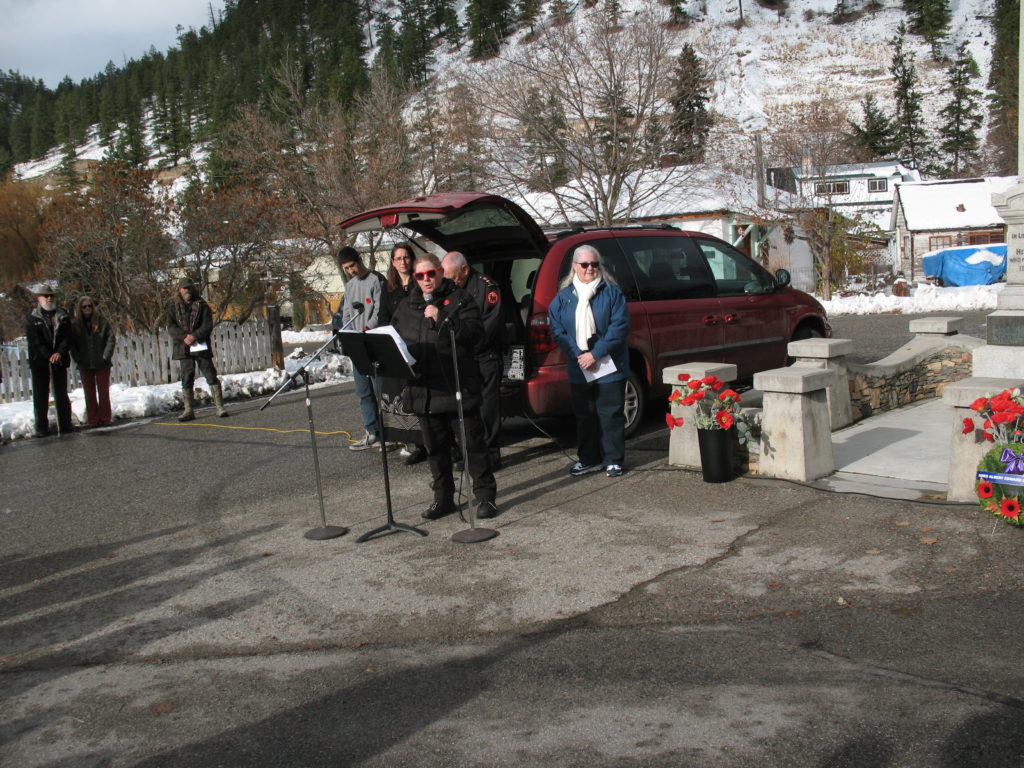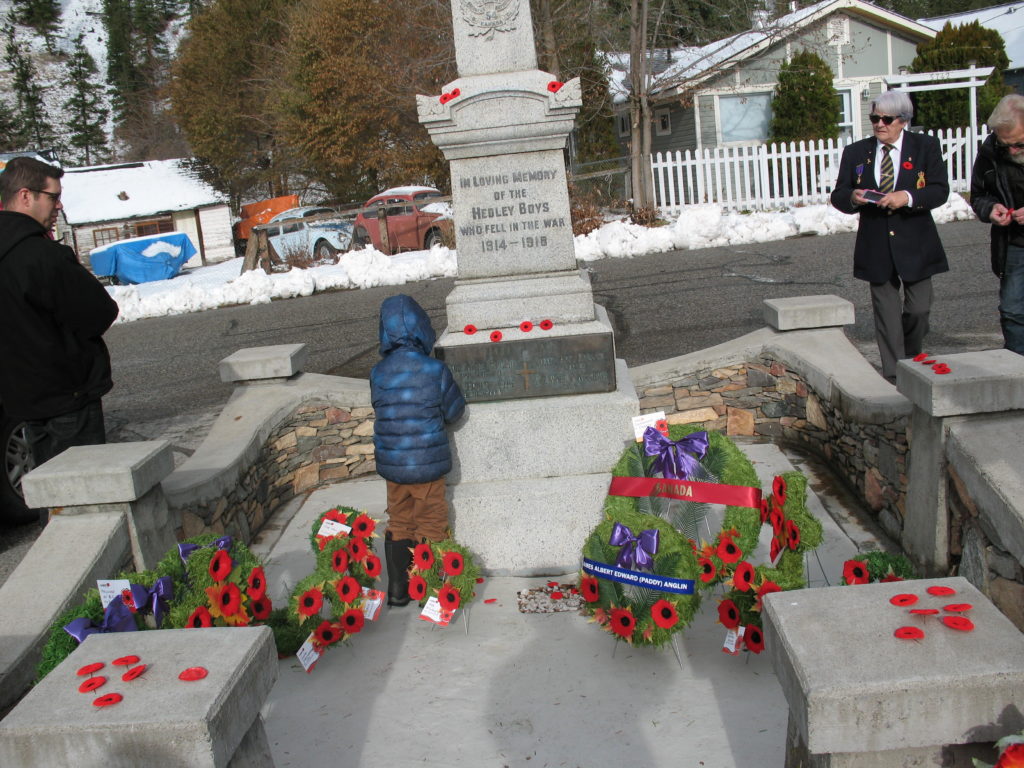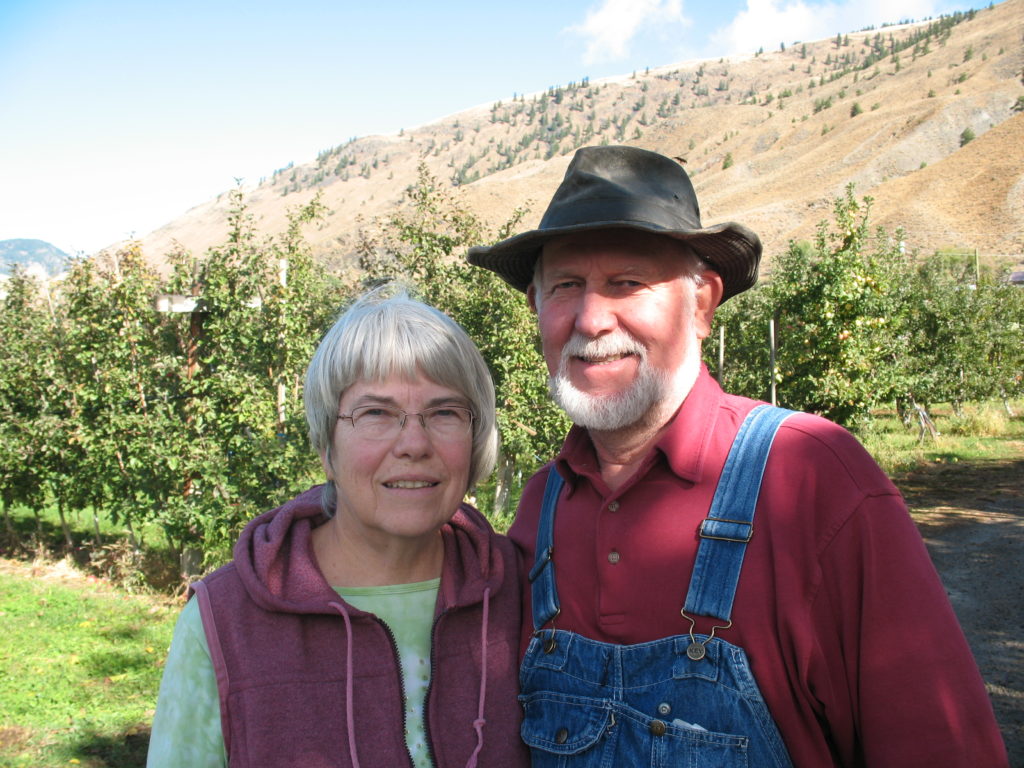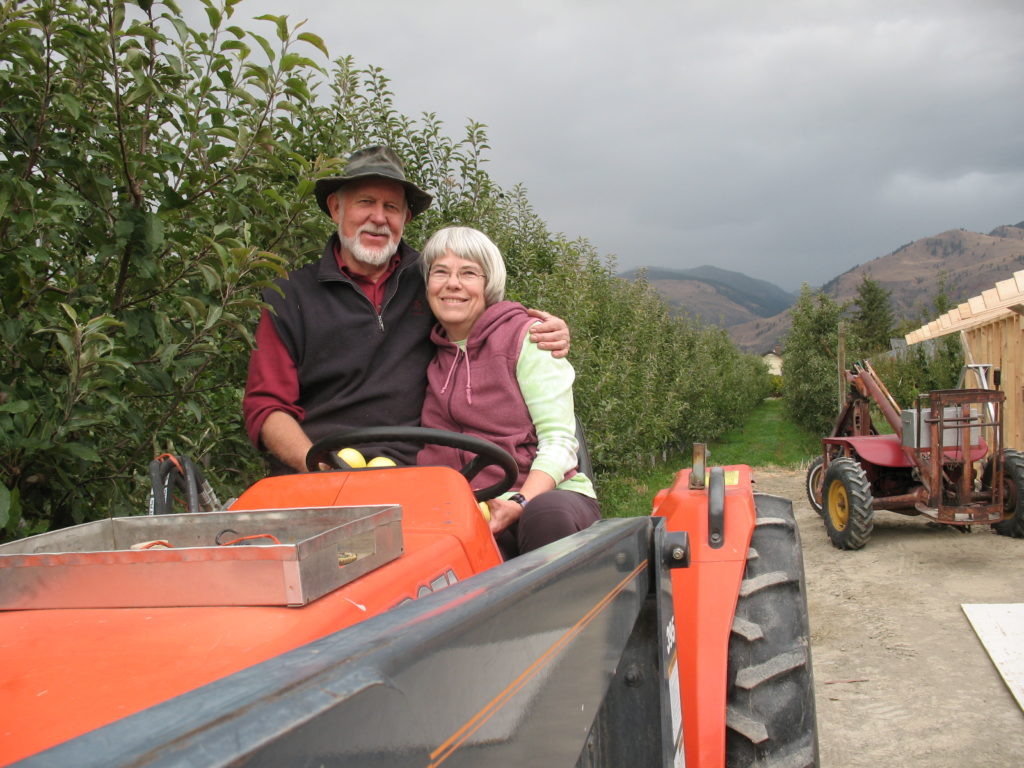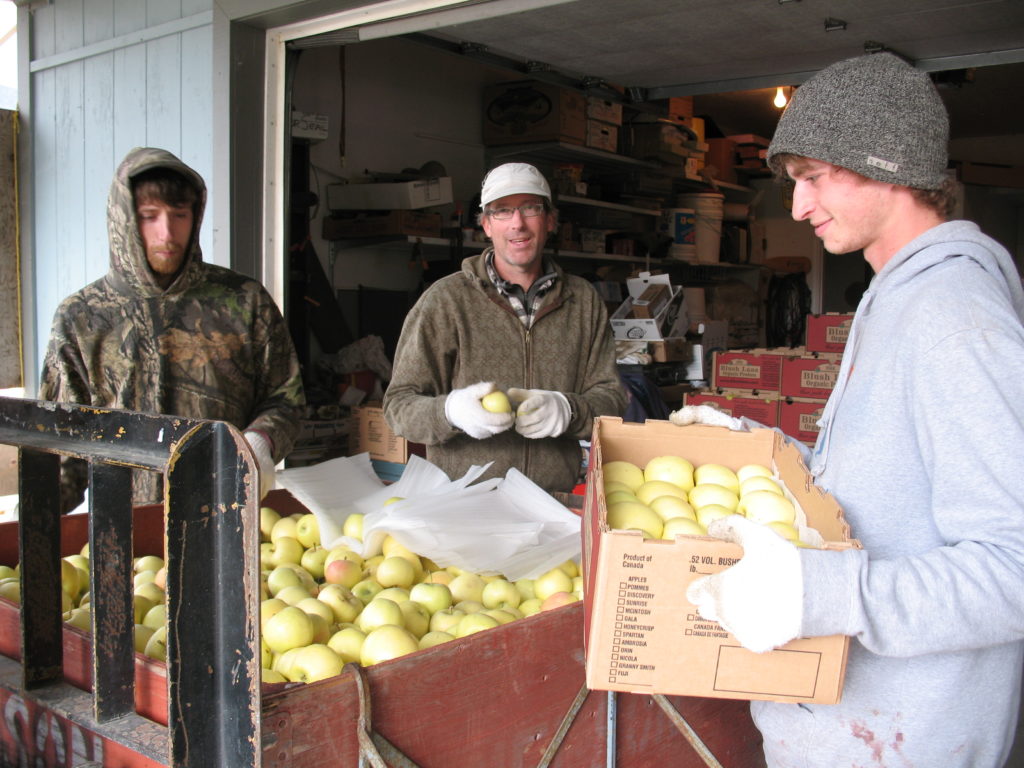Taegert, B.C. 1979. It was Christmas Eve in Taegert, a small remote former gold mining community in northern B.C. Snow had begun  falling steadily the previous night and the mountains surrounding our little town were now bedecked with a soft white mantel. Through the still falling snow, plumes of grey wood smoke streamed upward from chimneys into the dark sky.
falling steadily the previous night and the mountains surrounding our little town were now bedecked with a soft white mantel. Through the still falling snow, plumes of grey wood smoke streamed upward from chimneys into the dark sky.
My wife and I leaned forward, pressing into the chill north wind flinging snow into our cold faces. Not far ahead snow laden figures loomed out of the whiteness of the night. We were all hurrying, adults and children, to get a good seat at the Christmas Eve celebration in the community hall.
We arrived to find the hall already packed with a boisterous crowd. The only place was along the back wall with other stragglers. Outside, cold snow hurled itself at the hall, but inside it was toasty. The ancient pot bellied wood stove was working its magic. In one corner an enormous fir tree, with lights, ornaments and tinsel encouraged a holiday spirit.
The program MC, Marty Dyke, slipped from behind a curtain at the left end of the stage. She was a robust woman, something her loose, bright red dress could not hide. With a hearty laugh and booming voice, she said, “ Welcome to our community’s 38th Christmas concert.” Then she turned to the side of the stage where she had entered. “ Without further adieu, let’s put our hands together and bring on the famous Jones family!” There was clapping, hollering and stamping of feet.
The Jones clan came hustling on stage with guitars, fiddles, harmonicas and a banjo. Grandpa Jones began belting out the tunes and his whole lusty clan backed him up like they were on stage at Nashville, Tennessee. Pretty quick folks were smiling and singing along. A few pretty young girls in bright dresses danced in the aisles. It was a Christmas hootenanny. Marty always introduced them first because they knew how to stir up the crowd’s Christmas spirit.
Everyone settled down when 11 year old Susie Thomas began telling about the baby Jesus born in Bethlehem and laid in a manger. “It happened in a stable,” she said, “and there were probably sheep and donkeys watching. And shepherds came from taking care of their flocks in the fields.” She seemed awed by the event. Susie was followed by Mrs. Brown reading her latest Christmas poem.
Everyone was having a grand time. Everyone except me, that is. Just before the program started, Marty Dyke had whispered to me, “I’ve asked your friend J.K. Barnabas to bring his guitar and sing two or three tunes at the end. Be a fine way to wrap up the evening, don’t you think?” It was too late to change things, so I remained silent.
I was concerned because J.K.’s a black man. A big old white haired blues singer who used to perform in bars in cities like Winnipeg, Vancouver and Seattle. Not that anyone in Taegert would object to him singing blues, or to him being black. No one that is, except Gerhardt Gruber. And, in a way, old Gruber had a pretty good reason for not liking black men. He had nothing against black women.
In the big war back in the forties, he and his son were in the same company in the German Wehrmacht. In close combat, a black Yankee soldier shot the son dead right in front of Gruber. He’s been bitter against black men since that day.
That’s why I was troubled about J.K. Barnabas getting in front of this crowd. Gruber might have a flashback. What if he did something crazy? J.K. isn’t a well man. He doesn’t need that.
While my mind was thinking about these things, the evening was flying by. Now Marty called on J.K. He walked to the front slowly and sat down on a hard wooden bench. After taking a moment to adjust the guitar strings, he grinned at the children in the front row and launched into a frisky rendition of Frosty the Snowman. Next he pleased the crowd with Rudolph the Red Nosed reindeer. Everyone cheered when he was done, but not Gruber.
Then the raucous, buoyant mood was gone and he seemed to forget we were there. He drifted into a tune I was sure he had written himself.
“I woke up this mornin’ and the sun, it didn’t shine,
Was sittin’ in my room all alone, didn’t have one friend I could say was mine.
Too many nights in the bars, too many days on the road, now this body’s gettin’ old.
Snow’s fallin’ and I’m feelin’ mighty low, oh yes, I’m feelin’ mighty low.
My little baby’s gone.
She’s grown up big, don’t come to her daddy no more to play.
Sure has broke this old man’s heart.
Oh Yeah, sure has broke this old man’s heart.”
Then he was quiet, still sitting on the bench, a lonely old blues man. A single tear rolled slowly down one cheek.
A hush fell over the hall, and no one cheered or moved. It seemed everyone was expecting something to happen.
I heard the rustle of a dress and I looked to my left where old Gruber was sitting, arms crossed over his chest and face hard as the barrel of a German army rifle. Before he could stop her, his pretty little granddaughter had slipped off his lap and was running to where the white haired J.K. Barnabas was sitting.
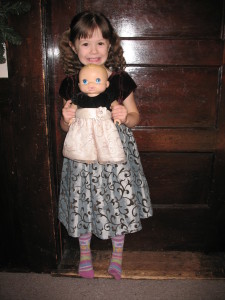
“Here, Mr. J.K.” she said, holding a little blond doll toward him. “Take my baby. She’ll make you happy. I have more babies at home.”
I think everyone stopped breathing and looked at old Gruber. His stiff white Wehrmacht moustache made him look real serious.
And then it happened. Gruber got up. Using his cane, he walked unsteadily to where his granddaughter and JK. were. He sat down on the bench next to J.K. and lifted the little girl onto the black man’s lap. Although he wasn’t a religious man, far as I knew, he began singing “Stille Nacht, Heilige Nacht,” in his native German, his sweet tenor carrying the words throughout the hall. After hesitating a moment, the old blues man joined his deep baritone to Gruber’s tenor.
“Silent night. Holy night. All is calm, all is bright.
Round yon virgin mother and child
Holy infant so tender and mild,
Sleep in heavenly peace
Sleep in heavenly peace.”
Then everyone was singing, and when the song was done, I saw men and women laughing and crying, shaking hands and embracing. At the front of the room, I saw the old black man and the old German army officer rise and embrace.
Taegert was never quite the same again. There was more of a sense of peace. And that’s why I say, “Only a child could have accomplished what happened in our little town that night. And only at Christmas.”
(first published Dec. 2014)

